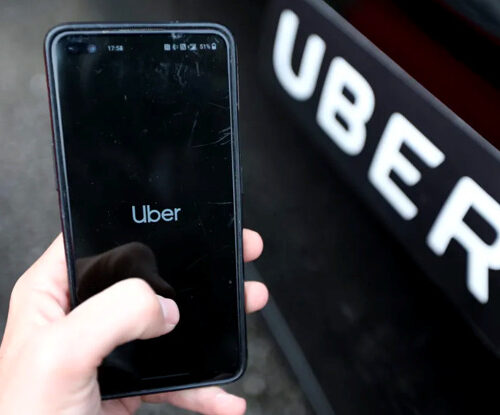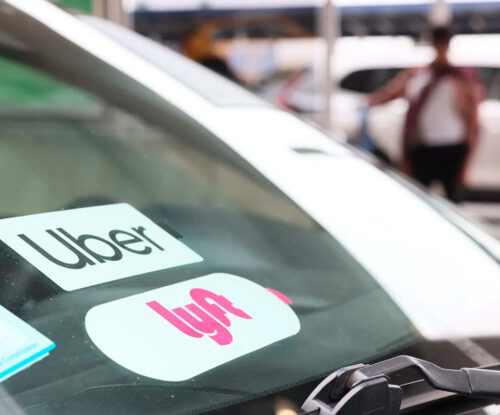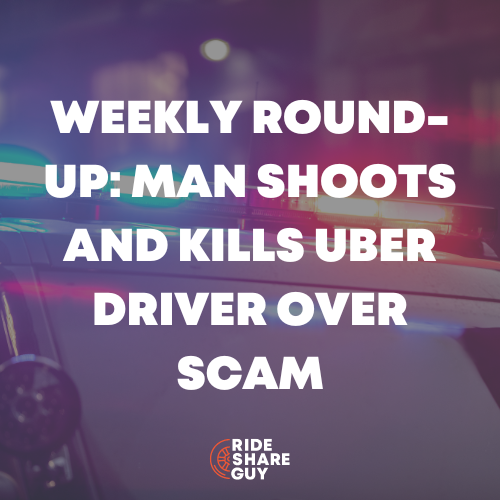Uber has shown resistance to laws attempting to change its business model in the US, and now it turns against similar laws proposed in Europe. Also in the news this week is a $10 million settlement that Lyft has agreed to.
Uber Warns Job Losses Would Be ‘Equivalent To VW Going Out Of Business’ If A New EU Law To Turn Gig Workers Into De Facto Employees Is Passed
Topic Originally Appeared On Fortune
Summary
Uber is a go-to app in some of Europe’s biggest cities—even where there are well-developed public transport systems. It’s also an important source of income for a gig economy that’s 28 million strong. But the ride-share giant’s future in the region may be under threat due to a proposed law on how gig workers are recognized, which could result in colossal job losses and cab fare hikes.

A European Union proposal, currently in the final stages of negotiation, plans to offer minimum salaries and more benefits to gig workers—including rideshare and food delivery drivers—by giving them the status of a de facto employee. That could potentially shake up global ride-share leader Uber’s presence in Europe, forcing it to cut jobs and hike fares by up to 40%.
“If Brussels forces Uber to reclassify drivers and couriers across the EU, we could expect to see a 50-70% reduction in the number of work opportunities,” Anabel Díaz, the regional general manager for Uber’s operations in Europe, told Fortune in an emailed statement Wednesday.
My Take
It’s a tale almost as old as rideshare at this point. Uber fights back every time any city, country, or government tries to regulate the rideshare industry, thereby affecting Uber’s vision of their future.
Usually, these changes are to redesignate drivers as employees as opposed to independent contractors, giving drivers more benefits and minimum wages the rideshare giant would have to comply with.
We’ll see what Uber does to try to get out of it this time. In the US, they have gone so far as creating their own law on their own terms (Prop-22) and letting voters decide. They have also threatened to leave markets entirely (recently, Minneapolis) if these kinds of laws are passed.
Lyft Agrees To $10 Million Settlement For Allegedly Failing To Disclose That Carl Icahn Sold Shares To George Soros Just Before The Company’s IPO
Topic Originally Appeared On Fortune
Summary
Lyft agreed to pay a $10 million penalty to settle US Securities and Exchange Commission claims that it failed to disclose a board director’s role in helping Carl Icahn sell his stake to George Soros just before the company’s initial public offering in 2019.

The SEC said on Monday that a Lyft director arranged for the sale of 2.6% of Lyft just before the firm’s IPO and failed to disclose the financial interest the director had in that sale. Three people with direct knowledge of the matter confirmed that the director was Jonathan Christodoro and that the sale was ultimately between the two billionaires.
Christodoro arranged for Icahn — who, as an investor in Lyft, had placed Christodoro on the board — to sell $424 million worth of private shares he owned in the ride-share giant, according to the people. This was a discount to the anticipated IPO price, the SEC said.
My Take
This may seem like old news since Lyft went public in 2019, but this settlement is new. It was just announced this week that Lyft has agreed to a $10 million settlement.
Sounds like a Lyft director made quite a bit of money without properly disclosing his dealings. When billionaires end up making even more money, but in a shady manner, people are not going to take that lightly.
Here’s what Lyft did for drivers during the time of their IPO: Lyft Offered Me Some IPO Stock and I Bought It.
DoorDash Customer Perplexed By Mysterious ‘Secret Code’ Driver Scrawled On Garage In Permanent Marker: ‘Stay Safe’
Topic Originally Appeared On NY POST
Summary
This food delivery came with a side of confusion.
A woman said she ordered food from DoorDash, and the driver dropped off her food and then vandalized her home.
“Ordered food today … the dasher came and dropped it off, but then wrote 514 above my garage in permanent marker,” wrote Reddit user Abigail who goes by the handle yellowenthusiastt.
Also in the Redditor’s post is a photo of the vandalism along with security footage showing the DoorDash driver’s bizarre act in broad daylight.
In the security video, the driver, whose face has been hidden to protect his identity, delivers the order to the undisclosed location and then goes to his car to grab a marker. He then goes back to the woman’s house and writes “514” before going back into his car, leaving the homeowner perplexed.
My Take
This definitely seems shady. And frankly, ballsy. These days with how popular it is to have security cameras on people’s homes, it still amazes me how much people think they can get away with when they are being actively filmed in the wrong.
This kind of thing definitely makes me leery of ordering food to my home if there aren’t other people there with me. Or keeping my car out on the driveway. Basically, this is a warning that people shouldn’t ever give any stranger any indication that they have something worth stealing or that they live alone.
Instacart’s 11% Plunge On Second Day Of Trading Wipes Out Almost All Of Its IPO Gains
Topic Originally Appeared On CNBC
Summary
Instacart shares slumped nearly 11% in their second day of trading Wednesday, continuing a slide that began immediately after the stock hit the Nasdaq on Tuesday and leaving it narrowly above its initial public offering price.
On Monday, Instacart sold shares in its long-awaited IPO at $30 apiece. Trading under the ticker symbol CART, the stock popped 40% to open at $42 but then sold off throughout the day to close at $33.70. By Wednesday afternoon, Instacart’s rally had fizzled further, and shares closed at $30.10.
Instacart’s offering helped reignite a sleepy IPO market, which has been mostly closed since late 2021 as companies were plagued by inflationary pressures and rising interest rates. But Instacart’s falling share price suggests investors are still hesitant to buy into tech companies that are aiming to disrupt traditional markets despite challenging economics….
My Take
Oof, that is a rough start. Perhaps things will turn around for Instacart. I don’t know much about the market or how it works, but it sounds like it’s been a rough time for anyone to try to go public and do it successfully since after the pandemic. Time will tell if Instacart made the right decision to go public now or not.
Uber Eats Will Start Accepting Food Stamps For Grocery Delivery In 2024
Topic Originally Appeared On The Verge
Summary
Uber Eats will start accepting food stamps and healthcare benefits as payment for grocery delivery orders, the company announced Wednesday. It also plans to add a new AI assistant that it says will help grocery customers get better deals.
Anyone with a valid Electronic Benefits Transfer (EBT) card, which disburses funds for the Supplemental Nutrition Assistance Program (SNAP, or food stamps), will be eligible to use their funds to pay for grocery delivery through Uber Eats starting in 2024.
The app will also accept FSA (flexible spending accounts) cards and flex cards that are issued through healthcare programs like Medicaid’s Managed Care and Medicare Advantage plans. The move comes as Uber’s post-pandemic pivot to food delivery continues to bear fruit, reaching almost $11 billion in revenue in 2022, compared to over $8.3 billion in revenue in 2021 and $3.9 billion in revenue in 2020.
My Take
More accessibility is better, in my opinion. Things like food delivery shouldn’t only be available to people who are well off. It should be available to anyone who needs the service, including people who are on food stamps. There’s no reason that all people shouldn’t have the same accessibility to food and goods.
Delivery is convenient and could make things easier for people who don’t have the means to go to the grocery store or who don’t have their own vehicles to do their own shopping. This is a move in the right direction if you ask me.
RSG Top News
David Risher, Lyft’s CEO, is coming on Show Me The Money Club! Join in the LIVE conversation and share your thoughts or ask your questions on Tuesday, September 26th at 6 PM EST / 3 PM PST. Make sure you subscribe so you don’t miss this stream or others.




